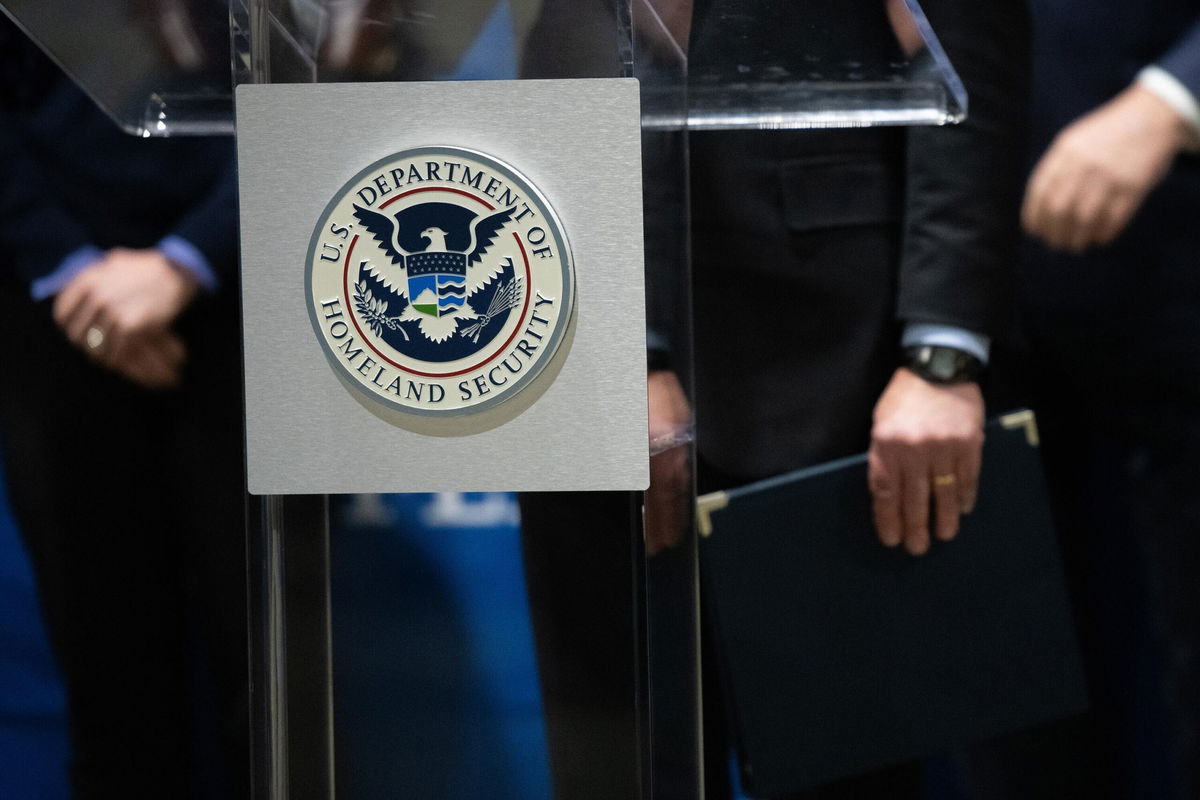DHS bulletin warns of ‘diverse and challenging’ terrorism threats ahead of holidays

The Department of Homeland Security warned in a new terrorism bulletin Wednesday of a "diverse and challenging threat environment" ahead of the holidays
By Geneva Sands, CNN
The Department of Homeland Security warned in a new terrorism bulletin Wednesday of a “diverse and challenging threat environment” ahead of the holidays, pointing to the spread of violent extremist narratives online, coronavirus pandemic-related stressors and the potential to exploit recent events in Afghanistan.
Although DHS is not aware of an imminent and credible threat, the public bulletin points out that upcoming religious holidays and associated mass gatherings have previously served as potential targets for acts of violence.
The latest bulletin largely reflects concerns included in the previous August bulletin but was issued to keep the public updated on the ongoing threats facing the US, according to the department.
This is the Biden administration’s fourth National Terrorism Advisory System bulletin, which is issued regularly to inform the public and law enforcement about national terrorism threats and to telegraph the need to be alert and report suspicious activity.
The bulletin notes that pandemic-related stressors have contributed to increased societal strains and tensions, driving several plots by domestic violent extremists.
Those stressors “may contribute to more violence this and next year,” the bulletin reads.
DHS is concerned that if a new Covid-19 variant emerges and additional public health restrictions are imposed, anti-government violent extremists “could potentially use the new restrictions as a rationale to target government or public health officials or facilities.”
On some online platforms connected to domestic violent extremism, there has been a fairly consistent focus on public health restrictions imposed because of Covid-19 and content that describes those restrictions as government overreach, according to a senior DHS official.
The US withdrawal from Afghanistan has also impacted the national threat environment. Foreign terrorist organizations and domestic extremists will likely continue to attempt to inspire potential US-based followers to engage in violent activity, including by exploiting recent events in Afghanistan, the bulletin reads.
Additionally, some domestic extremists have attempted to use the relocation of Afghan nationals to the US to exacerbate grievances over immigration and the American Muslim community.
The potential for conspiracy theory-fueled violence also remains a major concern for the department.
According to the bulletin, law enforcement officials have expressed concerns that the broad sharing of false narratives and conspiracy theories that endorse the use of violence will continue to gain traction.
The online activity of foreign and domestic threat actors is fueling the volatility of the current threat environment, the senior DHS official said.
“We continue to be concerned about the use of online platforms by domestic extremist organizations, foreign terrorist groups, foreign intelligence services as they seek to spread conspiracy theories, disinformation for the express purpose of inspiring acts of violence in the US,” the official said of the bulletin.
During a House Intelligence Committee hearing last week, DHS Counterterrorism Coordinator John Cohen said the department has put more emphasis on analyzing online threats of violence in the wake of the January 6 attack on the US Capitol.
“We have become much more forward leaning as it relates to the analyzing of online activity and evaluating activity from the perspective of the potential risk of violence,” he said.
Cohen told the committee that DHS is “much more cognizant and mindful” about incorporating that threat-related information into operational planning.
He pointed to Inauguration Day as an example. The response by law enforcement to Inauguration Day “was very different” from weeks earlier, he said, and included physical security measures in and around the Capitol and other locations as well as a highly visible presence of National Guard and law enforcement in Washington, DC, and state capitals around the country.
Comments about Inauguration Day on social media and extremist platforms reflected an understanding of those security measures and a reluctance to come to Washington, Cohen said, adding that “those who were planning acts of violence viewed it as a trap being set for their arrest or viewed it as not the right time to come and engage because of the security presence.”
The lesson from that, he said, is that DHS analysis has focused more on understanding when there may be a potential act of violence, and then taking steps — sometimes very visible — to create security measures that serve as a deterrent.
The-CNN-Wire
™ & © 2021 Cable News Network, Inc., a WarnerMedia Company. All rights reserved.